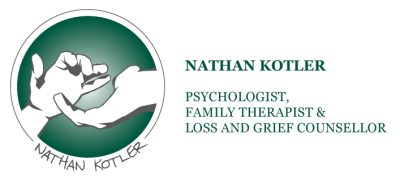Preparing children for the death of a parent is a confronting but important experience
ABC Radio Sydney, by Amanda Hoh, 12 Jul 2017.
As Lucas Cheang looks through photos in his scrapbook, he points to one of his mother Tina lying in bed and says simply: “This is when mummy died.”
It’s a heartbreaking sentence to hear from a six-year-old.
When Tina was diagnosed with secondary breast cancer in 2010, five months after Lucas was born, she and her husband Aaron were devastated.
But after chemotherapy, radiotherapy, surgery and hormone therapy, she was as doctors called her “a miracle” and well for another three years — until the cancer returned.
“We were married for almost 14 years,” Aaron said.
“I was worried Tina would never hear Lucas say his first words, call her mum … that she would die before he had fully developed that bond.
“She was amazing the whole time. She was always thankful for life, for the chance to be a mum, and she was just full of joy and always said every day was a gift from God.”
Rather than hide her illness, Tina and Aaron did all they could to create memories together for Lucas in the 14 months she had left.
Aaron reduced his work hours to part-time, the family went on excursions around Sydney, and he took plenty of photos and videos even of the “mundane things” Tina would do around the house.
As Christians, they spoke to Lucas at length about how they didn’t know why Tina had gotten cancer, but that when she died her soul would rise to heaven where she would wait for him.
“One of the difficult things is that people avoid talking about people who die,” Aaron said.
“We use euphemisms like ‘someone’s gone’ … but they don’t help little kids, so I definitely try and make sure we talk about Tina dying in very concrete terms.”
Tina died at home on the morning of November 6, 2015.
Lucas was in the room with her and describes that moment as when “mummy breathed out her last breath and even the nurse couldn’t help her”.
Speaking to young children with concrete words is very important, according to psychologist Nathan MacArthur.
Mr MacArthur is the bereavement service leader at HammondCare North and counselled Aaron and Lucas after Tina’s death.
“If we say someone’s passed away that can be confusing, or saying go to sleep; kids can then get scared to go to sleep,” he said.
“Kids at that age are very concrete thinkers. Being able to talk about when people die as their brains stop working, their lungs stop breathing … that’s how we explain how people die.
“That can feel enormously confronting for parents.”
Mr MacArthur recommended parents use books to help them find the words to explain to their children why their mum or dad is dying.
He also said to enlist the help of family, friends and the school particularly at times when the responsibilities of being a carer, a parent and breadwinner can feel overwhelming.
The same applies once the family member dies.
“Maintain routine,” Mr MacArthur said.
“Children will continue to ask a lot of questions. Be able to answer those questions clearly.
“Their behaviour might change with grief, like they might be clingy or try and act older.
“Keep having conversations with them about the parent, keep the memory present.”
At the start of her illness, Tina and Aaron set up a blog to keep family and friends updated with her progress.
Her humour and good spirit are reflected throughout her posts, like in one of the entries in 2015:
“Just a heads up: If things go badly I *will* be on the look out for an appropriate godly, single bride for Aaron! Must be good with kids. If that’s you, and you’re summoned to my death bed, don’t worry, it’s just for an interview! 😉 I will also take expressions of interest, but not quite yet! 🙂
Tina’s wishes were somewhat fulfilled by a friend from church, Naomi, who struck up a friendship with Aaron months after Tina had died.
After six months of chatting over Skype because Naomi was working overseas, and one visit with Lucas to Dubai, the pair became engaged and married about eight weeks ago.
“I think that’s one of the reasons the relationship worked, we could talk openly about Tina and there was never awkwardness about that, and never any awkwardness with Lukey either,” Naomi said.
One of Lucas’s anxieties after Tina died was who would look after him if his father also passed away.
“He had a really clear idea in his mind that there was a lot more security once we were married,” Naomi said.
“I think he was just really happy to have a mum and be like other kids again.”
Leave a reply